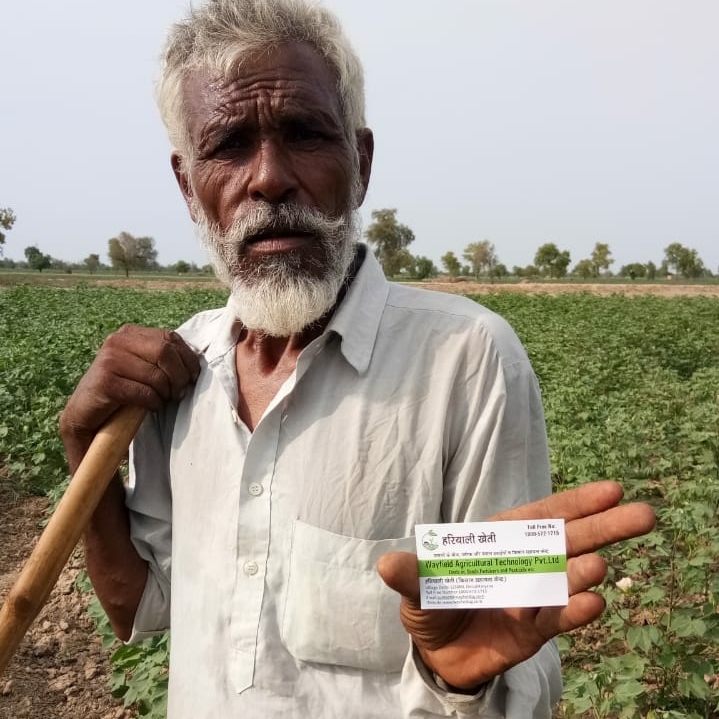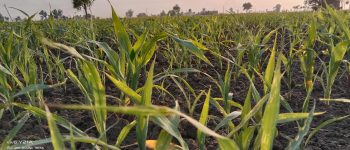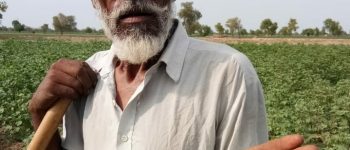The Issue: Climate Change, Agriculture, and Food Systems Transformation
Introduction
Agriculture is at the core of the climate crisis, contributing 24% of global greenhouse gas (GHG) emissions (FAO, 2022) while facing increasing climate variability, declining yields, and food insecurity. Smallholder farmers, who produce 35% of the world’s food, are disproportionately affected, struggling with unstable incomes and market exclusion.
With global food demand set to rise 70% by 2050 (FAO), the shift to climate-smart, plant-based, and regenerative food systems is urgent. This project aims to build an end-to-end climate-conscious food system by leveraging digital agronomy, soil regeneration, plant-based farming, and direct farmer-market linkages to increase farmer incomes and reduce agriculture’s carbon footprint.
1. The Agricultural-Climate Crisis: Data & Impact
1.1 Carbon Footprint of Agriculture
-Livestock methane emissions account for 37% of global methane output (IPCC, 2021).
-Fertilizer overuse results in nitrous oxide emissions 300x more potent than CO₂ (Nature, 2023).
-80% of deforestation is driven by agricultural expansion (World Resources Institute, 2022).
-Degraded soil stores 50-70% less carbon than healthy soil (FAO, 2021).
1.2 Farmer Livelihood Crisis
-500 million smallholder farmers produce one-third of the world’s food but earn 40% less than urban workers (World Bank, 2022).
-Crop failure due to climate change has increased by 23% in the last decade (FAO, 2023).
-Middlemen take 60-80% of farm profits, leaving farmers with only 20% of retail prices (UNCTAD, 2021).
1.3 The Rise of Plant-Based Agriculture
-The global plant-based food market will reach $162 billion by 2030 (Bloomberg Intelligence, 2022).
-40% of millennials are shifting to low-carbon diets (Statista, 2023).
-Crops like millets, amaranth, black soybean, and Moringa are drought-resistant and yield 300% more protein per acre than beef (FAO, 2021).
2. Building a Climate-Smart Food System
2.1 Digital Agronomy & Soil Regeneration
📌 AI-Powered Climate Advisory: Wayfield Ag’s platform has solved 1.3 million+ crop queries, enhancing farm productivity.
📌 Soil Health Restoration: 852,000+ acres benefit from climate-smart agronomy, increasing soil fertility by 30% per cycle.
📌 Carbon Sequestration: Healthy soils capture 3-5 tons of CO₂ per hectare per year, transforming agriculture into a climate solution.
2.2 Connecting Farmers to the Plant-Based Economy
📌 High-Value Crops: Amaranth, Moringa, black soybean, and Moringa boost farmer incomes by 3x compared to wheat/rice.
📌 Market Linkages: 270+ FPOs, retailers, and exporters connect directly with farmers, improving price realization.
📌 Eliminating Middlemen: Farmers retain 80-90% of product value (up from 20%).
2.3 Scaling Traditional, Climate-Resilient Crops for a Sustainable Future
📌 Promoting Indigenous Superfoods: Millets, black soybean, and amaranth gain global recognition for nutrition & sustainability.
📌 Aligning with Global Trends: Rising consumer demand for nutrient-dense, plant-based alternatives ensures high-demand crops.
📌 Ensuring Food Security: Climate-resilient crops reduce reliance on water-intensive agriculture, ensuring long-term sustainability.
3. Scaling the Model: 2025-2030
Phase 1: Pilot (2025-2026)
✅ Onboard 200+ farmers and food startups to test plant-based crop integration.
✅ Implement AI-driven agronomy across 50,000 acres.
✅ Establish direct-to-retail partnerships, processing 4,000+ farm orders.
Phase 2: Expansion (2027-2028)
✅ Scale to 500,000 farmers across multiple Indian states.
✅ Secure corporate partnerships with food brands and carbon credit platforms.
✅ Monitor soil carbon sequestration to create farmer carbon credits.
Phase 3: Global Replication (2029-2030)
✅ Expand into South Asia, Africa, and Latin America.
✅ Integrate fintech solutions for farmer credit based on sustainability metrics.
✅ Influence policy advocacy for climate-smart agriculture incentives.
4. Long-Term Global Impact
📌 Climate Impact: Reduce agricultural emissions by 30% and enhance soil carbon sequestration.
📌 Economic Impact: Increase farmer incomes by 40-70% through direct market access.
📌 Social Impact: Train 1 million+ farmers in sustainable farming, fostering climate-resilient communities.
📌 Scalability: AI-driven agronomy ensures cost-effective, globally replicable solutions.
5. The Future of Sustainable Food Systems
This project is more than an initiative—it’s a movement to redefine agriculture for climate resilience, farmer prosperity, and sustainable food production. By integrating data-driven agronomy, market linkages, and carbon-smart solutions, this model can transform global food systems, ensuring a profitable, climate-positive future.
🌍 The future of farming must be both climate-smart and economically viable. This project makes that future a reality. 🚀
✅ Plant-Based Food Startups & Retailers – Seeking sustainable, high-nutrient crop sourcing.
✅ Researchers & Universities – Studying soil health and regenerative farming.
✅ Policy Makers – Supporting climate-smart policies and farmer education.
✅ Investors & Funds – Financing infrastructure and training.
✅ Consumers -Driving demand for sustainable and nutritional food and ethical sourcing






 Wayfield Ag- Agronomy Platform Demo_compressed.pdf
Wayfield Ag- Agronomy Platform Demo_compressed.pdf